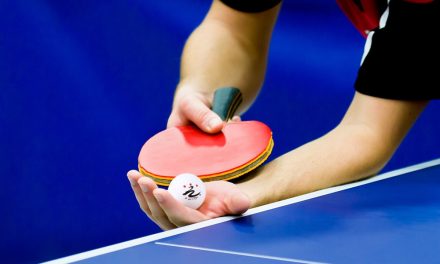The Winter Olympics is famous for producing an upset or two. If you don’t believe me, then you’ve clearly never watched Cool Runnings.
But the 2018 Winter Olympics in Pyeonchang were remarkable for numerous reasons, from surprise political truce between North and South Korea that saw them enter a united Korean team in women’s ice hockey and march together under a unification flag at the opening ceremony, and then of course some surprise results and the creation of some new sporting stars.
In the article below, we’ll take a look at three of the biggest shocks and talking points of the 2018 games, to see what made them so special.
Germany Beat Canada in Ice Hockey
One of the most nailed on Gold medals you can predict at the Winter Olympics is that Canada will land the top prize in Ice Hockey – even if they don’t have access to their NHL stars, as was a big controversy in the country in the build-up to the games. Nevertheless, Canada has won gold no less than nine times, most recently in the 2010 and 2014 games, meanwhile, the last time Germany even made the medals was way back in 1976 when West Germany won bronze.
So, when Canada simply had to beat Germany – who didn’t even qualify for Ice Hockey at the 2014 Olympics – to make their way to an Olympic final against Russia, no-one fancied the Germans – even those who like big odds in online betting. But, Germany wasn’t content with merely making up the numbers and soared to a remarkable 4-3 win in the semi-finals, even more, impressive considering Germany dominated the game, leading both 3-0 and then 4-1 before being pegged back.
Unfortunately for Germany though, they couldn’t extend their form into the final, as Russia won gold at the event for the first time since 1992, as they edged out as 4-3 winners. The Germans left the tournament with their heads held high though, having finished as silver medallists for the first time in the event. Quite a remarkable feat for a country that has just 25,934 registered ice hockey players, compared to Canada, which has over 600,000.
Ester Ledecka Lands super-G for Double Gold
While some athletes win multiple Olympic golds in slightly different disciplines, it’s certainly not normal for someone to come top of the podium in completely different events that use different equipment. Imagine, for example, Usain Bolt winning the 100m gold and then jumping into the pool after to win the butterfly. It just doesn’t happen.
That is, until Czechia’s Ester Ledecka caused a massive upset by winning the super-G in Alpine Skiing, before also winning a gold medal in her preferred snowboarding event: the parallel giant slalom. Indeed, by doing so, she became the first ever athlete to win two gold medals at the same Winter Olympics, while using two completely different sets of equipment.
Chloe Kim Wins Gold at 17
At the age of just 17, America’s Chloe Kim became the youngest ever woman to win an Olympic snowboarding medal, doing so in some style by winning gold, no less, in the snowboard halfpipe.
Indeed, it was not just the fact that the 17-year-old won gold, it was the manner in which she did so. Before her final attempt, she had already done enough to secure the top spot on the podium with a 93.75 score, but then recorded a near perfect score of 98.25 anyway – completely blowing away the competition and landing perfectly back to back 10s for the first time in the Olympics.
The win in Pyeonchang was even more special, considering Kim’s parents come from South Korea and she still has extended family living there.
Chloe Kim was already a star in the sport heading into the games, has become the first-ever female snowboarder in history to land 1080-degree spins back-to-back at the age of just 15. But while the four-time X-Games gold medallist was a star in her sport before, she’s now a global superstar – even making an appearance on the cover of Sports Illustrated following her Olympic gold.










